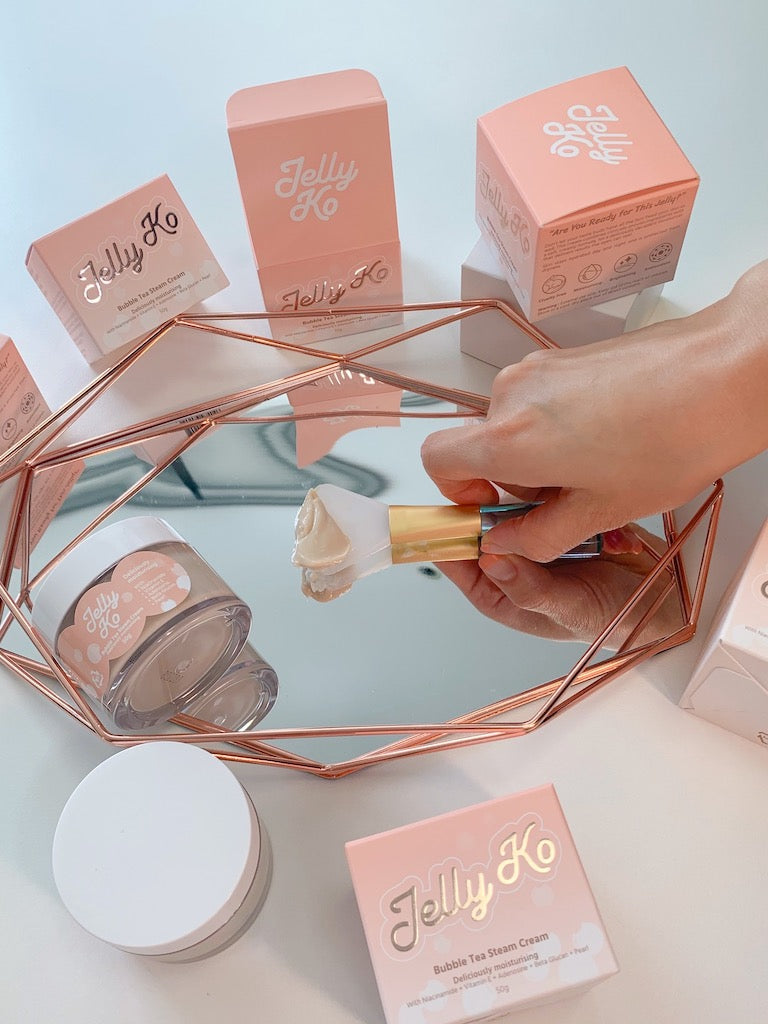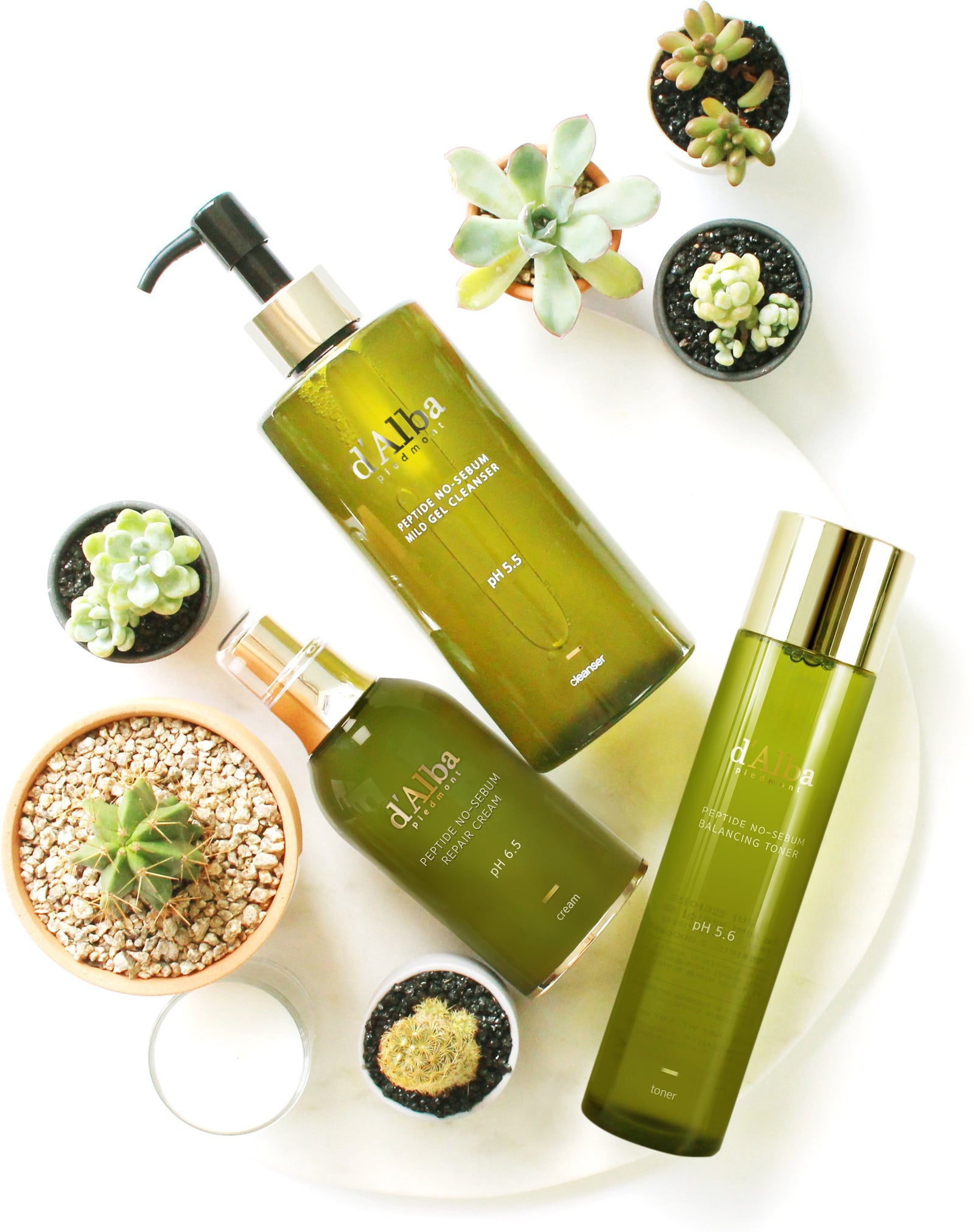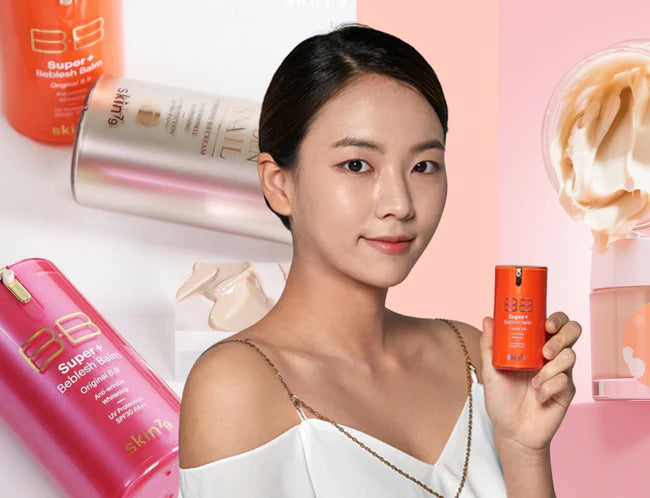The Korean Beauty Show 🎧 Your K-Beauty audio library starts here →
Menu
Need to Know K-Beauty Ingredients
October 06, 2023

Need to Know K-Beauty Ingredients
Everyone knows about snail mucin, hyaluronic acid and niacinamide. But what are the K-Beauty ingredients you don’t know much about that you should know?
On episode 220 of the Korean Beauty Show podcast, I want to focus on the ingredients that you probably don’t know as much about that are real game-changers for your skin. We’ll take a look at what they are, what they do, the benefits you can expect from them plus, most importantly, the K-Beauty products you’ll find them in.
CONNECT WITH ME
My Instagram: www.instagram.com/lauren.kbeauty
Shop Kbeauty: www.stylestory.com.au
Style Story’s IG: www.instagram.com/stylestory_kbeauty
TikTok: https://www.tiktok.com/@stylestory_kbeauty
Jelly Ko’s IG: www.instagram.com/jellyko_official
Facebook: www.facebook.com/stylestory.au
Website: www.thekoreanbeautyshow.com
Stay up to date with the latest K-Beauty: https://stylestory.com.au/pages/free-gift-signup
Find Your Perfect K-Beauty Product Quiz: https://stylestory.com.au/tools/perfect-product-finder/find-your-perfect-k-beauty-product#/
EPISODE SUMMARY
On the podcast, we've done a few ingredient-focused episodes over the years:
As well as how to read an ingredients list.
Need to Know K-Beauty Ingredients - Red Wild Ginseng
Definition: Panax ginseng is a herb that has been widely used in traditional oriental medicine because it has many benefits.
Purpose: Antioxidant, can inhibit melanin production, anti-inflammatory
What benefits can wild red ginseng have for your skin?
First things first, it's important to distinguish between different types of ginseng because not all ginseng is the same.
Ginseng is typically harvested after 3–6 years of growth, and then undergoes extensive cleaning and air drying (in the case of white ginseng) or steaming at 98°C–100°C for 2–3 hours (in the case of red ginseng).
Interestingly, after these two treatment methods, the roots differ in their saponin contents. This may be because of the changes that occurs in the chemical constituents during the steaming process.

Red ginseng is reported to have more potent pharmacological activities than white ginseng. That is because of the ginseng saponins (aka ginsenosides), which have an important role in ginseng's pharmacological action.
There are several studies related to red ginseng's effect on the skin. It has been reported that the ethanol extracts in red ginseng increase collagen synthesis and inhibit "MMP-1 activity".
In human skin, MMPs (or Matrix Metalloporteinsases) are induced by exposure to UV light and are responsible for the degradation of proteins like collagen, elastin. and proteoglycans. MMPs are divided into subgroups according to their characteristics, structure, and localization.
Among them, MMP-1 degrades Type I collagen, the main form found in human skin.
Source: "Effect of Korean red ginseng on collagen biosynthesis and MMP-I activity in human dermal fibroblast". J Ginseng Res. 2007;31:86–92 by Kim N., Koo B., Lee S., Hwang E., So S., Do J.

K-Beauty Products Containing Red Ginseng
Need to Know K-Beauty Ingredients: Betaine
Definition: An amino acid used as a humectant to control viscosity and as an emollient for skin to help it retain moisture.
Purpose: Humectant, Skin conditioning, Viscosity agent
What does Betaine actually do in skincare products?
Betaine helps the skin stay hydrated, plump, and youthful. In addition, it acts as a gentle hydrator that helps skin gain and maintain moisture.
K-Beauty Products Containing Betaine:

Need to Know K-Beauty Ingredients - Beta Glucan
Definition: A glucose chain used as an emollient (retain moisture) and bulking agent.
Purpose: Bulking, Skin conditioning
What does beta glucan actually do in skincare? Help prevent damage, soothe skin and reduce redness and irritation.
K-Beauty Products Containing Beta Glucan:
- Jelly Ko Bubble Tea Steam Cream
- Tosowoong SOS Red Clinic Ovalicin Cream
- Heimish Marine Care Eye Cream
- APLB Centella Cica Repair Cream

Need to Know K-Beauty Ingredients: Rice extract
INCI Name: Oryza sativa
Definition: Extract from a grain of rice used as an emollient for skin and hair (retain moisture).
Purpose: Skin conditioning, Hair conditioning
What does rice actually do in skincare products?
it delivers antioxidant benefits and plays a role in repairing visible skin damage. Additionally, arginine's hydration properties
K-Beauty Products Containing Rice Extract:

Need to Know Korean Beauty Ingredients: Birch Sap
INCI Name: Betula alba leaf water or Betula Platyphylla Japonica
Definition: Used as an emollient for skin (retains moisture).
Purpose: Skin conditioning
What does birch sap actually do in skincare?
It has anti-inflammatory and hydrating benefits. It contains 17 amino acids, minerals, enzymes, proteins, antioxidants, and vitamins. Birch sap possesses a unique molecular structure that is small enough to penetrate into the skin’s pores. It is therefore better able to distribute the nutrients needed by the skin, which visibly improves skin’s elasticity.
K-Beauty Products Containing Birch Sap:

Need to Know Korean Beauty Ingredients: Heartleaf
INCI Name: Houttuynia Cordata
Definition: An antioxidant and anti-inflammatory
Purpose: Skin conditioning
What does heartleaf do in skincare?
Heartleaf extract is known for several benefits in terms of skincare. It contains an abundance of amino acids and fatty acids, which can remove blackheads, regenerate the skin's protective barrier, and soothe irritated skin.
K-Beauty products containing Heartleaf:

Need to Know Korean Beauty Ingredients: Arginine
Definition: An essential amino acid, a key building block of protein, used as an emollient (retains moisture), for oral care (provides cosmetic effects to mouth), and as a pH adjuster (to control pH).
Purpose: Hair conditioning, Oral care agent, PH adjusters, Skin conditioning
What does arginine actually do in skincare?
It delivers antioxidant benefits and plays a role in repairing visible skin damage. Additionally, arginine's hydration properties
Best K-Beauty Products Containing Arginine:

Need to Know Korean Beauty Ingredients: Allantoin
Definition: An organic compound used as a skin protectant and emollient for skin (retains moisture).
Purpose: Skin protectant, Skin conditioning
What does allantoin actually do in skincare?
IT’s functions include rejuvenating, hydrating (reducing TEWL), smoothing, soothing, moisturising, improving dullness,
K-Beauty Products Containing Allantoin:

Need to Know Korean Skincare Ingredients: Panthenol
Definition: Also known as provitamin b5, this is used as an emollient for skin and hair (retain moisture) and solvent (dissolves ingredients in a solution).
Purpose: Hair conditioning, Skin conditioning, Solvent
What does panthenol actually do in skincare?
Panthenol makes for a great moisturizing ingredient. Research has shown that it decreases transepidermal water loss (water that evaporates through the skin). Products containing just 1% of panthenol can rapidly hydrate skin, resulting in a more supple feel and appearance.]
K-Beauty Products Containing Panthenol:

Need to Know Korean Skincare Ingredients: Squalane
Definition: A hydrocarbon (made from carbon and hydrogen), used as an emollient for hair (retains moisture) and as an occlusive for skin (helps hold moisture in).
Purpose: Skin conditioning
What does squalane actually do in skincare?
The squalane will sit on the surface of your skin and act as a barrier to prevent moisture from leaving.” Overall, using squalane is a safe way to boost hydration in your skin and hair
K-Beauty Products Containing Squalane:
- Jelly Ko Bubble Tea Steam Cream
- APLB Retinol Vitamin A Cream
- Numbuzin No.3 Skin Softening Serum
- AXIS-Y Dark Spot Correcting Glow Serum
STYLE STORY - Your Go-To for Kbeauty Since 2014
Shop Now
"There are several studies related to red ginseng's effect on the skin. It has been reported that the ethanol extracts in red ginseng increase collagen synthesis and inhibit "MMP-1 activity"."
Lauren Lee, Host of the Korean Beauty Show podcast



Leave a comment
Comments will be approved before showing up.